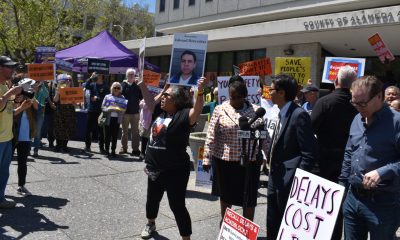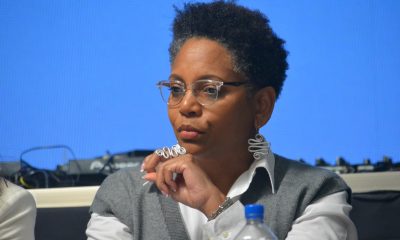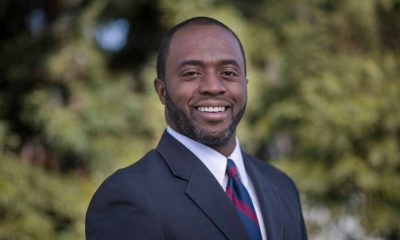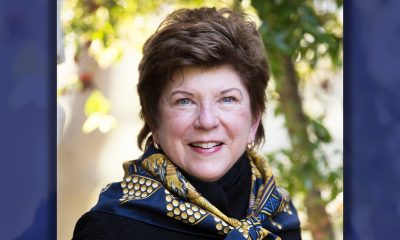Activism
CA Reparations Task Force LA Meeting’s Public Comments Get Heated
“Reparations are designed to repair and heal the damages done to Africans for 400 years who [suffered] through Jim Crow [laws],” California Secretary of State Shirley Weber who authored the task force legislation, Assembly Bill (AB) 3121 in 2020 while serving in the Assembly, said last January. “Reparations are for those who are descendants of slavery. Their ties are permanently severed from their homeland and their ability to return to Africa is almost impossible. We are truly Americans.”
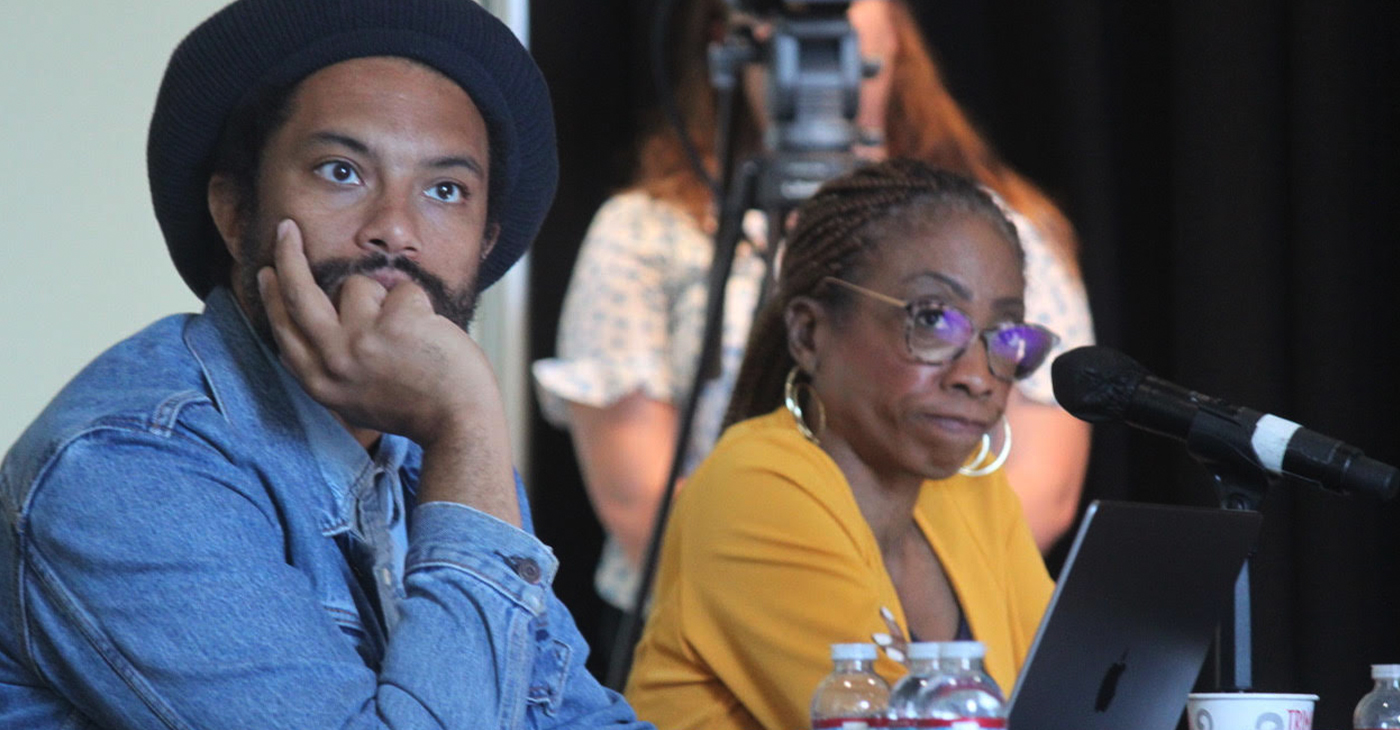
Antonio Ray Harvey | California Black Media
LOS ANGELES – The nine member California Task Force to Study and Develop Reparations Proposals for African Americans convened in Los Angeles at the California Science Center for its tenth meeting on Sept. 23 and Sept. 24.
The meeting opened with comments from the public with speakers passionately delivering their views on what reparations should look like.
Many focused their comments and opinions on who should and should not receive reparations. The opposing views created tension among those in the audience on an issue that the task force resolved months ago.
“I think it’s a good thing. We have a lot of passion in our community and reparations speak to the core of what makes Black Americans. I wouldn’t expect any less,” said Chad Brown, a member of the National Assembly of American Slavery Descendants (NAASDLA) and Coalition of a Just and Equitable California (CJEC).
“This is the process. I expect a lot of passion. It’s passion directed at finding solutions,” Brown told California Black Media.
The temperature in the room rose when Kevin Cosney, associate director of the California Black Power Network (CBPN), addressed the task force members and said that a majority of the members made a “problematic” decision in excluding people such as Africans enslaved in the Caribbean, Native Americans, and persons from the continent of Africa.
“We encourage this task force to be transparent, bold, gracious, expansive, and unified in its work of diverse opinions,” Cosney told the task force. “The fact that you prematurely rushed on eligibility is problematic and disrespects the community’s voice. We would like you to reconsider and take this into account.”
Cosney’s CBPN and Brown’s CJEC are two of seven “anchor organizations,” selected across the state to host “community listening sessions” in conjunction with the task force.
The nonprofit California Black Power Network describes itself as a “growing, united ecosystem of Black empowering grassroots organizations” collaboration to change the lived conditions of Black Californians “by dismantling systemic and anti-Black racism.”

CJEC is a state-wide coalition of organizations, associations, and community members united for reparations for the descendants of enslaved Black American men and women.
California Secretary of State Shirley Weber who authored the task force legislation, Assembly Bill (AB) 3121 in 2020 while serving in the Assembly, has taken the position that compensation should be limited to African Americans who are descendants of Africans enslaved in the United States.
“Reparations are designed to repair and heal the damages done to Africans for 400 years who [suffered] through Jim Crow [laws],” Weber said last January. “Reparations are for those who are descendants of slavery. Their ties are permanently severed from their homeland and their ability to return to Africa is almost impossible. We are truly Americans.”

Last March the task force voted 5-4 that lineage will determine who will be eligible for reparations over race.
Task Force chairperson Kamilah Moore, vice-chair Amos Brown, pastor of Third Baptist Church in San Francisco, and president of his local NAACP branch; University of California-Berkeley professor Jovan Scott Lewis; San Diego City Councilwoman Monica Montgomery-Steppe, and Sen. Steven Bradford (D-Gardena) voted in approval of lineage.
Eligibility is determined by an individual being African American, “the descendant of a [person enslaved as chattel] or the descendant of a free-Black person living in the United States prior to the end of the 19th century,” Moore said.
Attorney Don Tamaki, Assemblymember Reggie Jones-Sawyer (D-Los Angeles), Los Angeles-based attorney Lisa Holder, and Loyola-Marymount professor Cheryl Grills, voted in favor of race.
AB 3121 established the task force with a “special consideration” of those who are descendants of persons enslaved in the United States. Starting with the Atlantic Slave Trade, chattel slavery was sanctioned in the U.S. from 1619 to 1865.

“We agree that there should be special consideration for those that trace their lineage back to Slavery,” Cosney said. “But we also know and understand that the system of white supremacy affects everyone who is Black on this planet and in this country.”
Members from CJEC and CBPN moved their heated discussion outside of the facility after making their comments. But, the conversations cooled off with smiles and gestures of mutual respect for opinions.
Brown said the eligibility issue is settled but he is not at odds with debating the merits of the decision of the task force. He “stands on” the fact that Black families were impacted by slavery and “those families, descendants, are owed reparations.”
“Reparations are not something that is a cure. It is not something meant to change the minds of people,” Brown said. “Reparations are meant to repair a special community that has been impacted by slavery, Jim Crow, convict leasing, mass incarcerations, and the throughline of slave ships and chains.”
The next Task Force in-person meeting is scheduled for Oakland in December 2022 followed by San Diego in January 2023 and Sacramento in February 2023.
Activism
Calif. Anti-Sex Trafficking Advocates Discuss Competing Bills, Strategies
Advocates from across California are challenging state officials and community leaders to support legislation that provides resources and services for survivors and victims of human trafficking, as well as assistance as they transition back into civil society. Some of those advocates are also calling for more effective state policy to curtail trafficking, a crime that has an outsized impact on Black children, particularly girls.
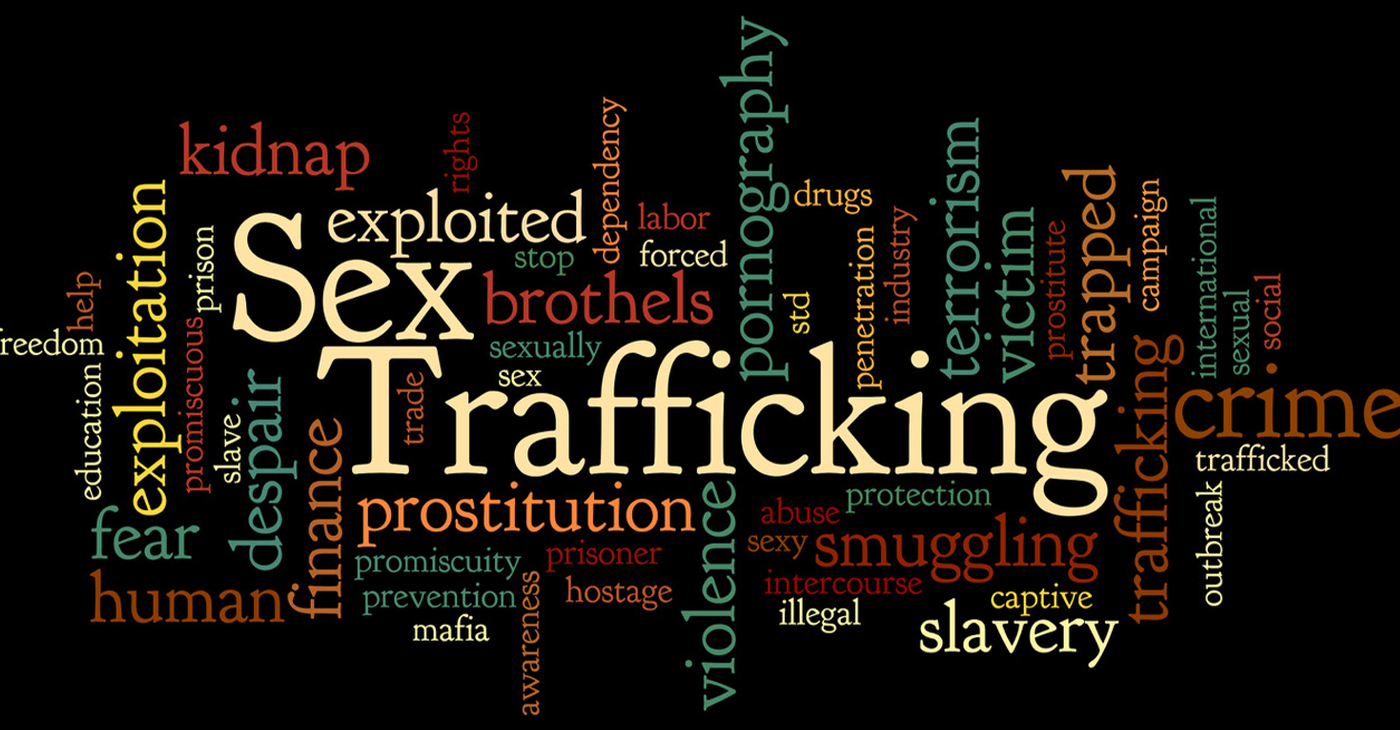
By Bo Tefu, California Black Media
Advocates from across California are challenging state officials and community leaders to support legislation that provides resources and services for survivors and victims of human trafficking, as well as assistance as they transition back into civil society.
Some of those advocates are also calling for more effective state policy to curtail trafficking, a crime that has an outsized impact on Black children, particularly girls.
According to the FBI, a report covering a two-year period found Black children accounted for 57% of all juvenile arrests for prostitution. In addition, 40% of sex trafficking victims were Black and 60% of those victims had been enrolled in the foster care system.
“It is time to hold the perpetrators who take advantage of our children accountable,” said the Rev. Shane Harris, a San Diego-based activist, former foster youth and founder of the Peoples Association of Justice Advocates, (PAJA), a national civil rights organization and policy think tank.
“It is time to send a thorough message that if you seek to buy a child for sex, you will pay the highest criminal penalties in this state,” added Harris who was speaking at a rally at the State Capitol earlier this month. Harris was speaking in support of Senate Bill 1414, authored by Sen. Shannon Grove (D-Bakersfield), which calls for people who buy sex from minors to be punished with a felony. The punishment includes a two-year prison sentence and a $25,000 fine.
Harris said the PAJA is the only civil rights organization in the state that supports SB 1414.
Harris urged other Black-led groups who favor anti-trafficking legislation more focused on criminal justice reforms (as opposed to stiffer penalties), to “join the movement.”
Many of those civil rights groups fear that SB 1414 could lead to the incarceration of more Black youth.
Those sentiments were echoed in a panel discussion organized by Black women advocates on April 26 to examine the cause and effects of human trafficking in California’s Black communities. The virtual event was hosted by the Forgotten Children, Inc, a faith-based nonprofit that advocates for survivors and victims of human trafficking through anti-trafficking campaigns and initiatives.
Panelists shared the psychological impact of sexual exploitation on youth and children in the long term.
Author and educator Dr. Stephany Powell shared statistics and information revealing that African American women and girls are the most trafficked nationwide.
Powell, who serves as the senior advisor on law enforcement and policy at the National Center on Sexual Exploitation said that national data indicates that sex trade survivors are disproportionately women of color. She stated that male survivors often go unnoticed because boys rarely report trafficked crimes.
Powell said that decriminalizing prostitution in California could increase human trafficking. She argued that Senate Bill 357, authored by Sen. Scott Wiener (D-San Francisco), which was signed into law in 2022 and legalized loitering for prostitution, caused a surge in street-level prostitution.
Panelist and psychologist Dr. Gloria Morrow shared opposing views on decriminalizing prostitution. She said that decriminalizing prostitution could help survivors gain access to state resources and support.
Despite opposing views, Powell and Morrow agree that the Black community needs resources and educational programs to address human trafficking.
Activism
Obituary: Social Justice Leader, the Rev. Cecil Williams, Passes at 94
On April 22, community leader and social justice advocate Reverend Cecil Williams died at his home in San Francisco surrounded by his loved ones, according to his family. He was 94 years old.
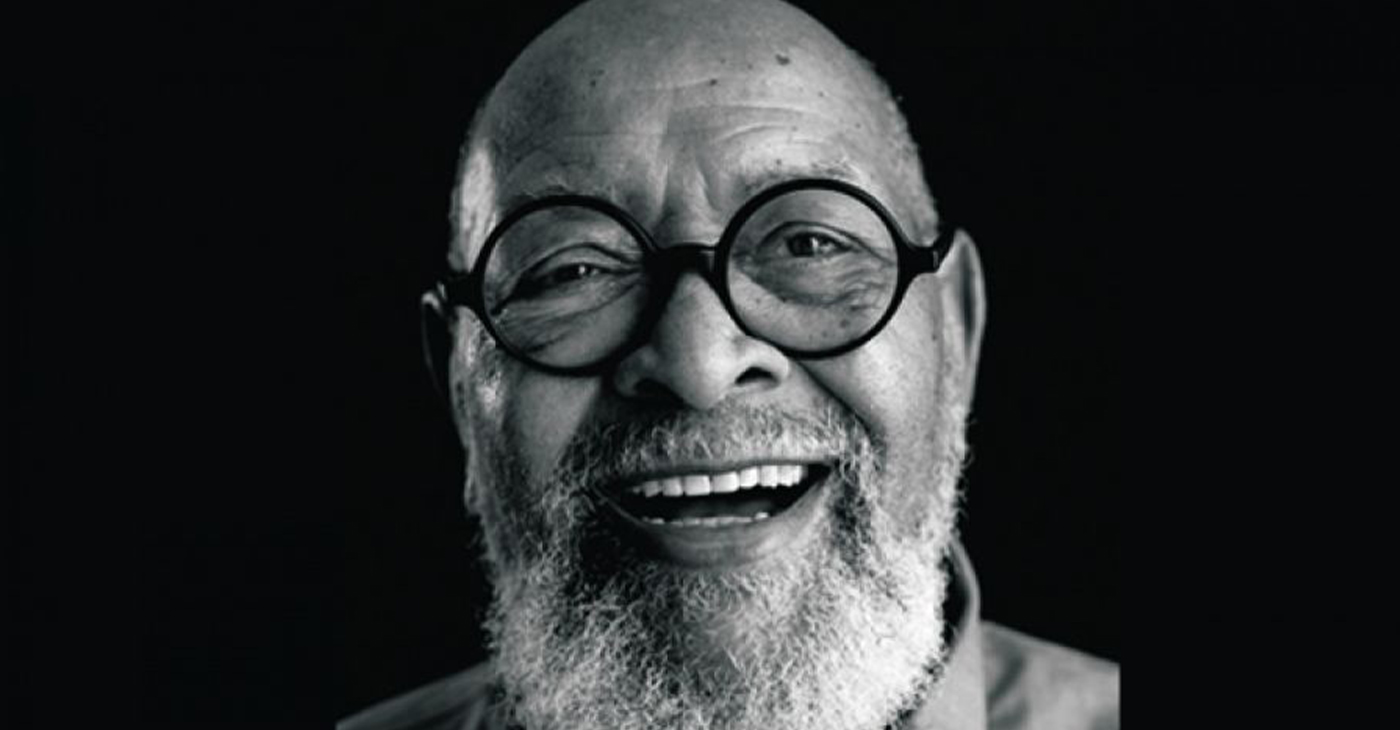
By California Black Media
On April 22, community leader and social justice advocate Reverend Cecil Williams died at his home in San Francisco surrounded by his loved ones, according to his family.
He was 94 years old.
The reverend was a civil rights leader who advocated for the equal rights of lesbian, gay, bisexual, transgender, and queer people in the Bay Area.
Williams was the head pastor of the non-denominational GLIDE Memorial United Methodist Church. The church welcomed individuals from the queer community and people struggling with homelessness, housing instability and substance use disorder (SUD).
Through his work, Rev. Williams attracted national attention. Prominent political and cultural leaders such as Maya Angelou, Bono, Oprah Winfrey, and Bill Clinton all attended church services at Glide.
Congressmember Barbara Lee (D-CA-12) said she is deeply saddened about the passing of her dear friend.
“The Reverend changed the lives of millions through radical love, support, inclusivity, and a commitment to service to the most marginalized,” Lee said.
Gov. Gavin Newsom said that the reverend inspired people across California to embody the values of generosity and acceptance.
Rev. Williams was, “a visionary leader whose legendary compassion and love for his community transformed the lives of people from all walks of life,” Newsom said.
Rev. Williams served as the chief executive officer of the Glide Foundation until his retirement in 2023.
Activism
Oakland Post: Week of May 1 – 7, 2024
The printed Weekly Edition of the Oakland Post: Week of May 1 – 7, 2024

To enlarge your view of this issue, use the slider, magnifying glass icon or full page icon in the lower right corner of the browser window. ![]()
-

 Community2 weeks ago
Community2 weeks agoFinancial Assistance Bill for Descendants of Enslaved Persons to Help Them Purchase, Own, or Maintain a Home
-

 Activism4 weeks ago
Activism4 weeks agoOakland Post: Week of April 3 – 6, 2024
-

 Business2 weeks ago
Business2 weeks agoV.P. Kamala Harris: Americans With Criminal Records Will Soon Be Eligible for SBA Loans
-

 Activism3 weeks ago
Activism3 weeks agoOakland Post: Week of April 10 – 16, 2024
-

 Community2 weeks ago
Community2 weeks agoAG Bonta Says Oakland School Leaders Should Comply with State Laws to Avoid ‘Disparate Harm’ When Closing or Merging Schools
-

 Community2 weeks ago
Community2 weeks agoOakland WNBA Player to be Inducted Into Hall of Fame
-

 Community2 weeks ago
Community2 weeks agoRichmond Nonprofit Helps Ex-Felons Get Back on Their Feet
-

 Community2 weeks ago
Community2 weeks agoRPAL to Rename Technology Center for Retired Police Captain Arthur Lee Johnson

